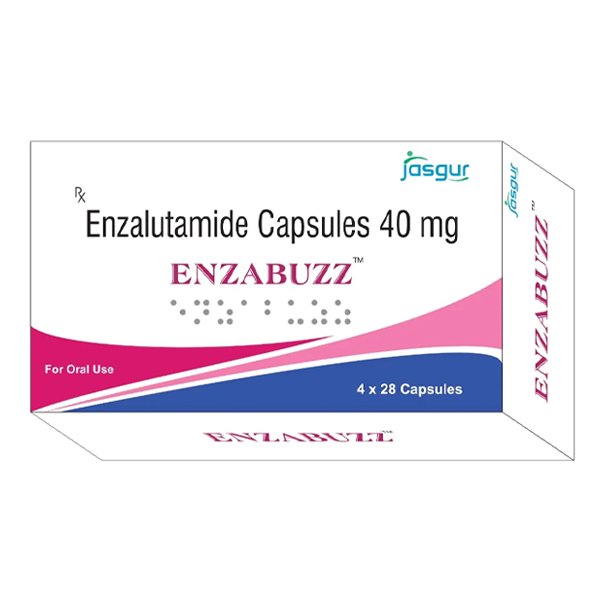Best Anti-Cancer Medicines: A Comprehensive Guide to Trending Treatments in 2025
Introduction: Understanding the Fight Against Cancer Cancer remains one of the most challenging diseases of our time, affecting millions globally. With advancements in medical science, the search for the best anti-cancer medicines has intensified. These medicines aim to target cancer cells effectively while minimizing side effects. In this blog, we explore the latest and most effective treatments, their mechanisms, and how they are revolutionizing cancer care. Whether you're a patient, caregiver, or simply curious, this guide will provide valuable insights into the world of anti-cancer therapies.

Introduction: Understanding the Fight Against Cancer
Cancer remains one of the most challenging diseases of our time, affecting millions globally. With advancements in medical science, the search for the best anti-cancer medicines has intensified. These medicines aim to target cancer cells effectively while minimizing side effects. In this blog, we explore the latest and most effective treatments, their mechanisms, and how they are revolutionizing cancer care. Whether you're a patient, caregiver, or simply curious, this guide will provide valuable insights into the world of anti-cancer therapies.
1. What Are the Best Anti-Cancer Medicines?
The best anti-cancer medicines are those that offer high efficacy with minimal side effects. These include chemotherapy drugs, targeted therapies, immunotherapies, and hormone therapies. Medicines like Pembrolizumab (Keytruda) and Trastuzumab (Herceptin) have shown remarkable success in treating various cancers. These drugs work by targeting specific cancer cell mechanisms, ensuring precision in treatment. The development of such medicines has significantly improved survival rates and quality of life for patients.
2. Trending Anti-Cancer Medicines in 2023
2023 has seen groundbreaking advancements in cancer treatment. CAR-T cell therapy, a form of immunotherapy, is gaining traction for its ability to reprogram a patient’s immune cells to fight cancer. Similarly, PARP inhibitors like Olaparib are proving effective against BRCA-mutated cancers. These trending treatments are setting new benchmarks in oncology, offering hope to patients with previously untreatable cancers.
3. How Do Anti-Cancer Medicines Work?
The best anti-cancer medicines operate through various mechanisms. Chemotherapy drugs kill rapidly dividing cells, while targeted therapies block specific molecules involved in cancer growth. Immunotherapies enhance the body’s immune response to cancer, and hormone therapies disrupt hormone-driven cancers. Understanding these mechanisms helps patients and doctors choose the most appropriate treatment for specific cancer types.
4. Benefits of Modern Anti-Cancer Medicines
Modern anti-cancer medicines offer numerous benefits, including higher success rates, fewer side effects, and personalized treatment options. Targeted therapies, for instance, minimize damage to healthy cells, reducing complications. Immunotherapies provide long-lasting remission by empowering the immune system. These advancements are transforming cancer from a death sentence to a manageable condition.
5. Challenges in Developing Anti-Cancer Medicines
Despite progress, developing the best anti-cancer medicines is fraught with challenges. High research costs, lengthy clinical trials, and drug resistance are significant hurdles. Additionally, ensuring accessibility and affordability remains a concern. Addressing these challenges requires global collaboration and innovative approaches to drug development.
6. Natural Anti-Cancer Remedies: Do They Work?
While modern medicines dominate cancer treatment, natural remedies like turmeric, green tea, and medicinal mushrooms are gaining attention. Though not replacements for conventional treatments, these remedies may complement therapies by boosting immunity and reducing inflammation. However, patients should consult doctors before incorporating them into their regimen.
7. The Role of Immunotherapy in Cancer Treatment
Immunotherapy is a game-changer in the quest for the best anti-cancer medicines. Drugs like Nivolumab and Ipilimumab have shown remarkable results in treating melanoma and lung cancer. By harnessing the body’s immune system, these treatments offer a powerful weapon against cancer, often with fewer side effects than traditional therapies.
8. Personalized Medicine: The Future of Cancer Treatment
Personalized medicine tailors treatments based on a patient’s genetic makeup, ensuring higher efficacy. The best anti-cancer medicines in this category include drugs like Imatinib, which targets specific genetic mutations in leukemia. This approach minimizes trial-and-error in treatment, offering hope for better outcomes.
9. Side Effects of Anti-Cancer Medicines
While the best anti-cancer medicines are effective, they often come with side effects like fatigue, nausea, and hair loss. Understanding these effects helps patients prepare and manage them better. Advances in supportive care, such as anti-nausea medications, are improving patients’ quality of life during treatment.
10. The Cost of Anti-Cancer Medicines
The cost of the best anti-cancer medicines can be prohibitive, limiting access for many patients. Efforts to reduce prices, such as generic versions and government subsidies, are crucial. Affordable treatments ensure that more patients can benefit from life-saving therapies.
11. Breakthroughs in Anti-Cancer Drug Delivery
Innovative drug delivery methods, such as nanoparticles and liposomes, are enhancing the effectiveness of the best anti-cancer medicines. These methods ensure precise targeting of cancer cells, reducing side effects and improving treatment outcomes. Such breakthroughs are paving the way for more efficient cancer therapies.
12. The Importance of Early Detection and Treatment
Early detection significantly improves the effectiveness of the best anti-cancer medicines. Regular screenings and awareness campaigns play a vital role in identifying cancer at treatable stages. Combining early detection with advanced treatments offers the best chance of survival.
13. Global Efforts in Cancer Research
Global collaboration is essential in the fight against cancer. Organizations like the WHO and NIH are funding research to discover the best anti-cancer medicines. Sharing knowledge and resources accelerates the development of effective treatments, benefiting patients worldwide.
14. The Role of Diet and Lifestyle in Cancer Prevention
While the best anti-cancer medicines are crucial, prevention is equally important. A healthy diet rich in fruits, vegetables, and whole grains, combined with regular exercise, can reduce cancer risk. Avoiding tobacco and limiting alcohol further enhances prevention efforts.
15. Conclusion: Hope for the Future
The search for the best anti-cancer medicines continues to bring hope to millions. With advancements in science and technology, the future of cancer treatment looks promising. By staying informed and supporting research, we can contribute to a world where cancer is no longer a life-threatening disease.
What's Your Reaction?

















/All_Nippon_Airways_Boeing_787-8_Dreamliner_JA801A_OKJ_in_flight-958bd939106045d19aa0c6c81a7d65c9.jpg)


